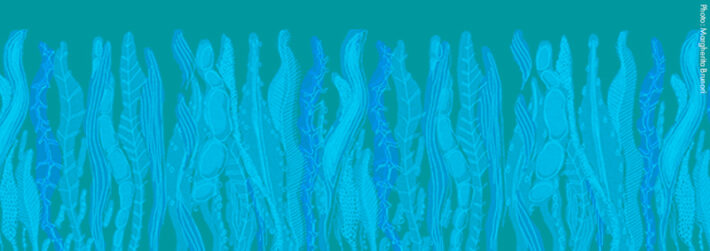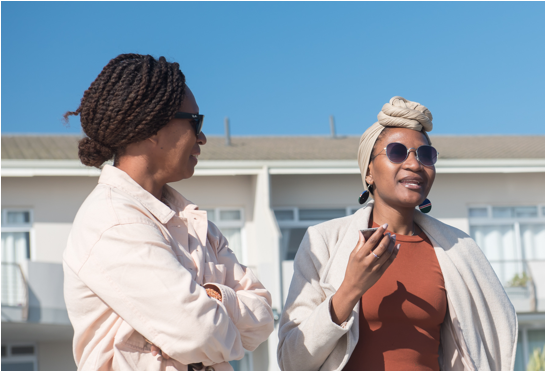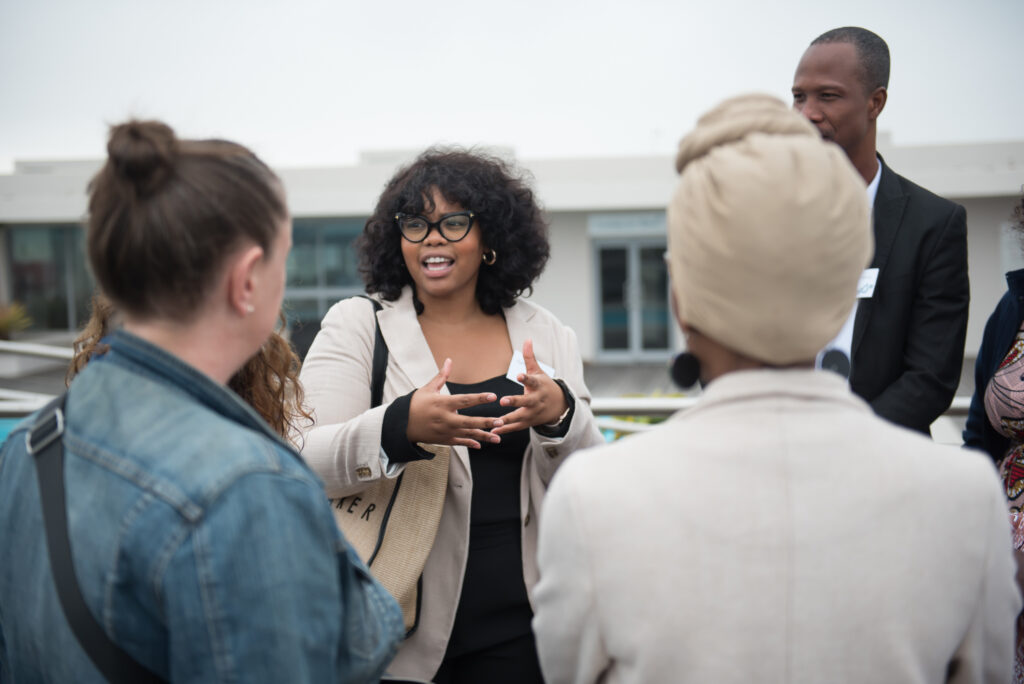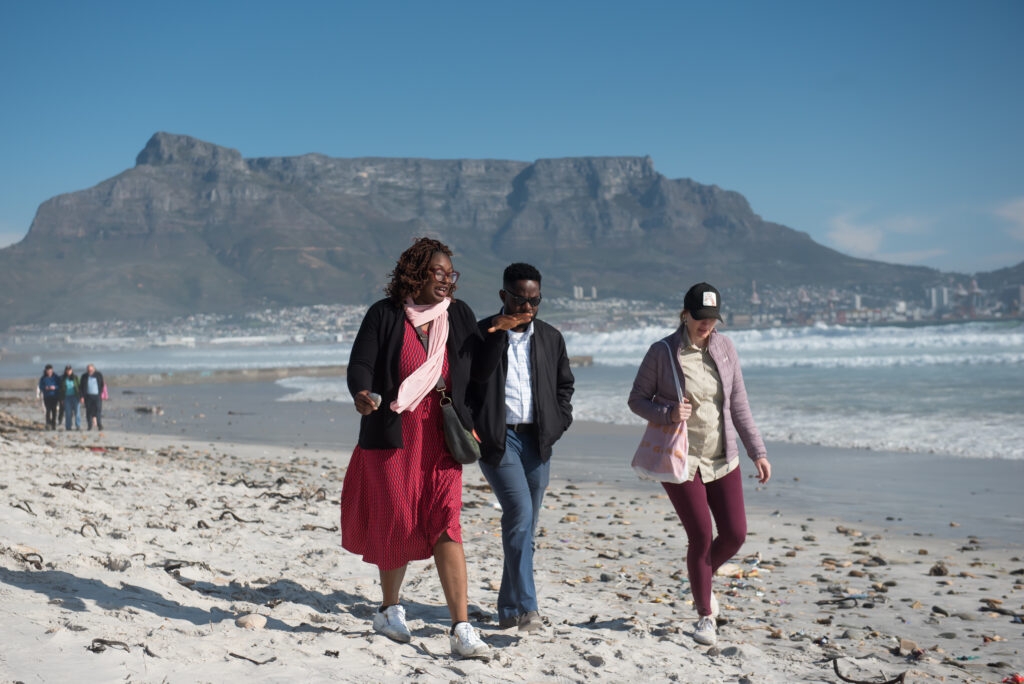Researchers’ reflections on the One Ocean Hub journey

This is a collection of reflections of researchers across the One Ocean Hub community about their personal journey and the collective innovations of the Hub and what they have meant for their future endeavours. We are grateful for all that the individual researchers have taught the whole Hub community and our partners, and profoundly proud of the extent to which the Hub has contributed to their careers as change-makers.
The One Ocean Hub made specific commitments, from the outset, to supporting emerging researchers in our Code of Practice, which was a specific requirement from our funder that we consider critical for fair and transformative research. And it has been great to see the emerging researchers-led initiatives and publications that they have produced.
All these reflections can be of interest to other early-career and well-established researchers and to funders who are interested in transformative research and fair partnerships.
Lysa Wini
Halo Olketa! My name is Lysa Wini, and I am proud to call the Solomon Islands home—a nation of islands scattered across the vast Pacific Ocean. For us, the ocean is so much more than a resource; it is our lifeblood, our identity, our story. It shapes who we are as a people.
Through the One Ocean Hub, I have been on a transformative journey—one that has redefined how I see the ocean, the world, and my role in driving change. My research explores the enduring colonial legacies embedded in maritime law and their profound impact on indigenous communities and ocean governance in the Solomon Islands. These issues are deeply personal because they touch the soul of my people, my heritage, and our connection to the sea. The Hub’s mission to confront historical injustices, amplify indigenous voices, and advocate for their inclusion in decision-making aligns deeply with my own values and aspirations.
One of the most profound highlights of this journey has been experiencing the unique space that the One Ocean Hub creates—a space where voices like mine, from ocean-fluent communities, are not just acknowledged but valued. I come from a village in Lau Lagoon, where my people, the imola i asi (saltwater people), have lived in harmony with the ocean for centuries. We have built homes on man-made islands, adapting our knowledge and understanding of the world around us to the sea’s rhythms. This ancestral wisdom, nurtured by a deep connection to the ocean, holds invaluable lessons for the world. Global systems must embrace these perspectives to truly transform. The One Ocean Hub recognizes this truth, providing pathways for diverse voices to influence global conversations and decision-making.
The journey toward transformative ocean governance is far from complete. Yet, one thing has become clear: By harnessing the power of collective knowledge, we can envision a future where the ocean is protected, respected, and equitably shared by all. To me, the ocean is more than a home—it is a source of hope.

Marly Muudeni Samuel
My name is Marly Muudeni Samuel. I’m from Namibia, but I’m currently pursuing my PhD in Glasgow at the Glasgow School of Art. my PhD is revolving around ocean cultural heritage and how we can preserve that using augmented reality. So I’m a tech creative. I love working with technology. So for my PhD, me and my communities, all the participants that I’ve been working with from Namibia, we co-created an application that captures their relationships with the ocean, why they’re important, and how these communities and these relationships can be linked with other people.
What other people can learn from these relationships for, say, ocean conservation, but also just for, preservation for other people to see that the ocean has been benefiting these communities in a certain way, especially in cultural and in the heritage sense.
When I joined the Hub in 2020, I thought about my grandmother, who many, many years ago, relocated to Luderitz, which is an ocean town in Namibia. And that’s where my mom grew up. And I wanted to understand the relationship they had with the ocean, and learn about my heritage in that sense as well.
The Ocean Hub has been amazing in the sense that they created that platform for me to learn outside the box. As part of the Hub’s transdisciplinary journey, I could connect with people in the industry and in local communities, and create an output that can benefit not just one group of people or one organization, but everyone.

Aphiwe Moshani
My name is Aphiwe Moshani. I’m a PhD candidate at the University of Cape Town. The Hub really took time to delve into what transdisciplinarity that really looks like and how it can be practically done. And I don’t think that’s something I’ve ever seen before. And I do hope that this is a way of doing things that we can transfer to different ways of working and have this be a transferable methodology, so to speak.
I think that this was particularly helpful in a South African context as well, because we do not only operate in research silos, but by sector. This means that from a governance perspective, the decisions are also made in a very siloed and sectored way. I think that within academic institutions and projects, and within a way of working in governance in general, this approach to what collaborative work really looks like something that was unique.
The Hub has give me the confidence as an academic from the University of Cape Town (or any South African university for that matter) to occupy an international space and realize that you do belong here and what I have to say matters. Because I don’t only represent myself as an academic, I represent other people who look like me, other young girls who look like me.
My passion for research really stems from the possibility to make an impact and ensure accessibility of knowledge. I think it is problematic to keep knowledge out of reach. You know, we’re so proud of our value in knowledge creation, but it is problematic to gate-keep that knowledge. So, under the Hub and in collaboration with UNITAR (UN Institute for Training and Research) we’ve developed the One Ocean Learn, a platform to disseminate freely available information and research outputs about the ocean. It is so interesting to see which research outputs that are produced by academics are open access and which are not. And I think dissemination and accessibility is such a big part of what the Hub tries to do often, particularly by connecting separate platforms that share knowledge relevant to the ocean.
Georgina Yaa Oduro
I’m Georgina Yaa Oduro, I’ve been with the One Ocean Hub since 2019 when the project started in Ghana. I joined because I’ve known for a while that ocean is not all about marine sciences. It’s not all about fishery sciences, but also a critical area for sociologists, anthropologists because of the community engagement, because of relationships, because of traditions, because of customary practices. If we’re making impact on societies, we need to understand the conflicts of the communities. We need to understand the lifestyle, the culture, the practices of communities and their diverse members.
What I have benefited from, in being part of the One Ocean Hub, is focusing more on the perspective of the global ocean and also the legal perspective because my research matters particularly in the critical area of law enforcement in the fisheries sector.

Bola Erinosho
My name is Bola Erinosho, I am, senior lecturer at the University of Derby, and I am also the Country co-director for the One Ocean Hub in Ghana at the University of Cape Coast in Ghana. Personally, the Hub has meant a journey of learning for me, that’s the best way to describe it. My specialty is in law and, and traditionally with law and law research, we are often quite focused on the letter of the law.
But through the hub, I have expanded my research to include also a lot of socio-legal components of it. So, by interacting with all of the social scientists in the Hub and all of the other disciplines on the Hub, my research has taken a more expansive form, it’s much more contextualized. The actual substance of the law itself can be quite tedious to non-lawyers. By bringing in that all of those arts-based methods we were able to put the information across in a way that is more, accessible to the communities we work with.
This journey of learning how to do that kind of research, trying new methods of research and new approaches, building connections and relationships with all the other disciplines that were present in the Hub towards building some kind of shared understanding, is perhaps the highlight of my experience on the hub.
There have also been defining relationships. I have made so many friends.
Alana Malinde Lancaster
I’m Alana Malinde Lancaster. I’m a lecturer in law and the head of the Environmental Law, Ocean Governance and Climate Justice Unit of the Faculty of Law at the University of the West Indies Cave Hill campus in Barbados. Across the Caribbean region in many research situations, you make alliances really solely for work, but I like to think with the One Ocean Hub I have made friendships that have lasted over the last five years and most likely will last for the rest of my life. These friendships have led to research and other projects, working on the link between human rights and the marine environment.
Most recently, we had a very successful collaboration with respect to, to tendering, a submission to the Inter-American Court on Human Rights, which, basically looks at, brings a lot of the work we have been doing over the last five years between human rights, biodiversity law, climate change law, International Law of The Sea within the context of the Inter-American system and beyond. We’ve also done work on the UN General Comment 26 which links climate change and children’s rights. Other novel areas of research I was involved under the Hub were customary marine laws and ocean crimes. I am sure that this work will spill over into the legacy of the Hub.
Related SDGs: